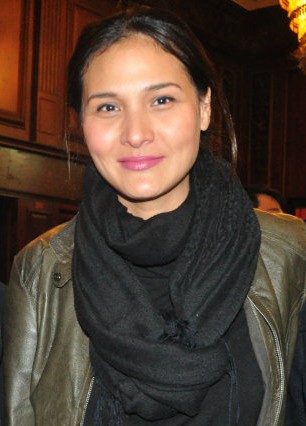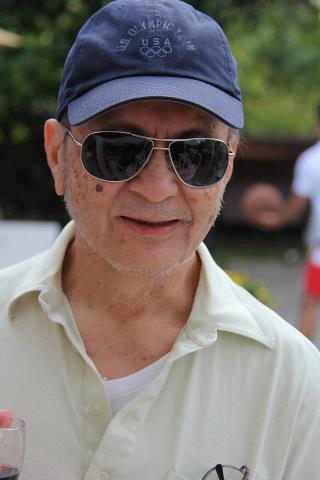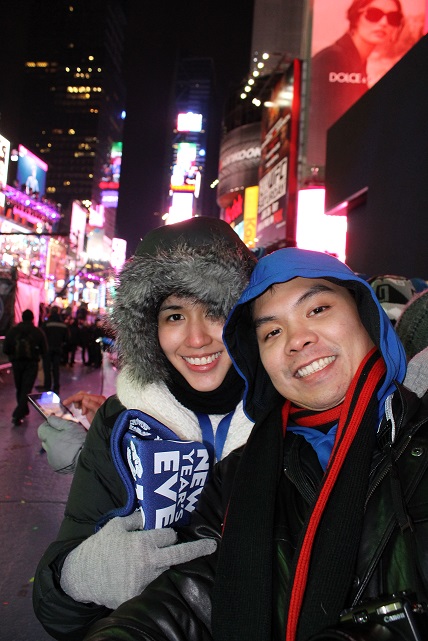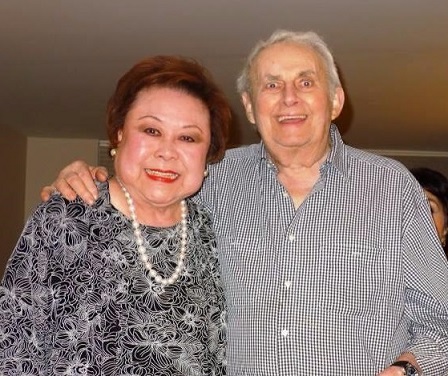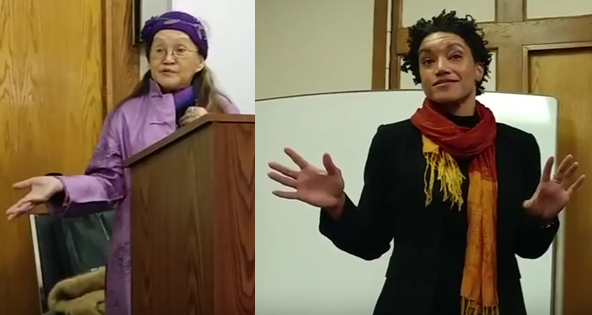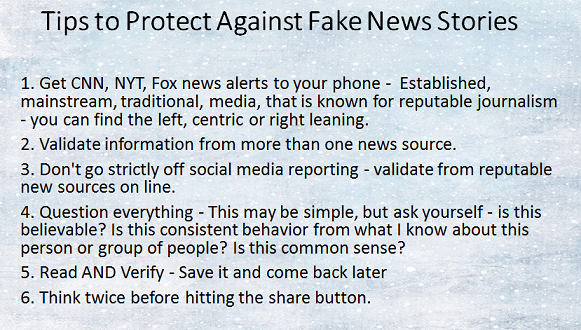Fake News: Read, question what you’re reading, think twice before sharing (and other things to remember)
By Cristina Dc PastorLast year, when news broke that the singer Prince died, security industry professional Jessica Robinson did not immediately read online. She “sat and waited” till the news appeared with regularity in a number of reputable news sites.
Writer Ninotchka Rosca said a dog biting a man is not news. But a man biting a dog could be, depending on the notion of a “cultural matrix.” In some parts of the world, she said, dog as food could be a form of culinary tradition in which case even that may not qualify as news.
PurePoint International CEO Jessica Robinson and journalist and women’s rights activist Ninotchka Rosca found themselves having to deal with Fake News in their lives. Speaking before the Kapihan forum of the Fil-Am Press Club of New York, the women shared their insights – with a mix of sternness and humor — on what Fake News is and how to protect the public against a never-ending surge of lies and misinformation on social media.
Fake News thrives because of two things, according to Robinson: accessibility of information and profitability. There are at least 150 Fake News sites operating out of Macedonia and typically run by teenagers in that Balkan republic, she said. A BBC report says Fake News websites is a “cottage industry” in the tiny city of Veles.
“A teenager can just make a Fake News site and funnel it into the different social media outlets in different parts of the world and you can test it where it is most profitable,” said Robinson. The teens make money through advertising.
“There’s just so many opportunities to do it in social media, and the opportunity is there,” she said.
No question the proliferation of Fake News had impacted the presidential election, she said. “It has impacted the U.S. election. There are other elections coming up around the world. It’s really scary.”
She said the deluge of Fake News is prompting certain countries to question the role of social media as a vehicle for communication or social interaction. Some African countries, she said, are considering banning social media during the election period, and others like Indonesia are threatening to shut them down.
“A lot of Fake News can be hate news,” she declared. She used the New York Times’s definition of what is ‘hate news’ as a “toxic mix of lies, white-supremacist content and bullying that can inspire attacks on Muslims, gay people, women, African-Americans and others.”
For her part, Rosca said news in its traditional form is any information that is “real and actual about decisions, statements, events that are important to human beings and noteworthy.”
But there are other forms. One is “erroneous news” where a publication makes an unintentional mistake in reporting and acknowledges it later. This happened when the Washington Post reported on the alleged Russian hacking of an electric power grid in Vermont. What actually happened was the power company was able to quickly isolate the malware and reported it to federal authorities. No real hacking happened. The Post promptly made its correction.
However, Fake News abounds and this is a huge issue, she said. In the Philippines, it could be a form of “fabricated” information ranging from the “fantastic to the mildly disorienting.” One of the more laughable is news that Rodrigo Duterte’s candidacy for president was endorsed by “everyone from President Obama to Beyonce,” she cited as an example.
Another news that is obviously bogus was the political opposition being blamed by Duterte followers for taking away their Wi-Fi connection on January 9. It was actually the Philippine military that jammed cell phone signals during the Black Nazarene procession for security reasons.
The best antidote to Fake News is “great journalism,” said Rosca. She urged reporters to continue writing excellent stories and to not let go of the discipline of constantly following up until they get the facts right.
This was echoed by Robinson. She stressed the importance of constant education for readers to learn how to discern information and to think critically.
“The onus is on the journalist to do that,” she said.

